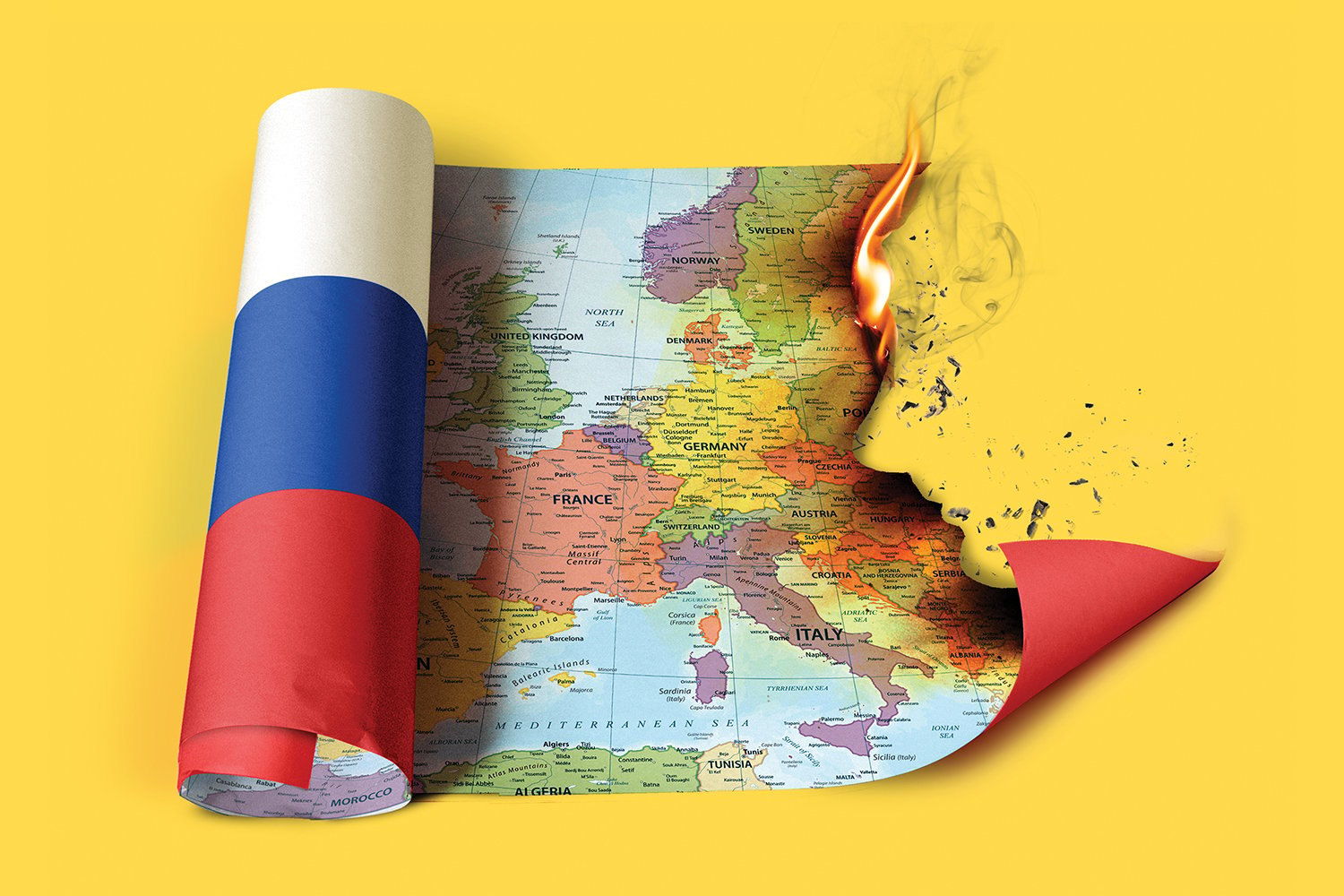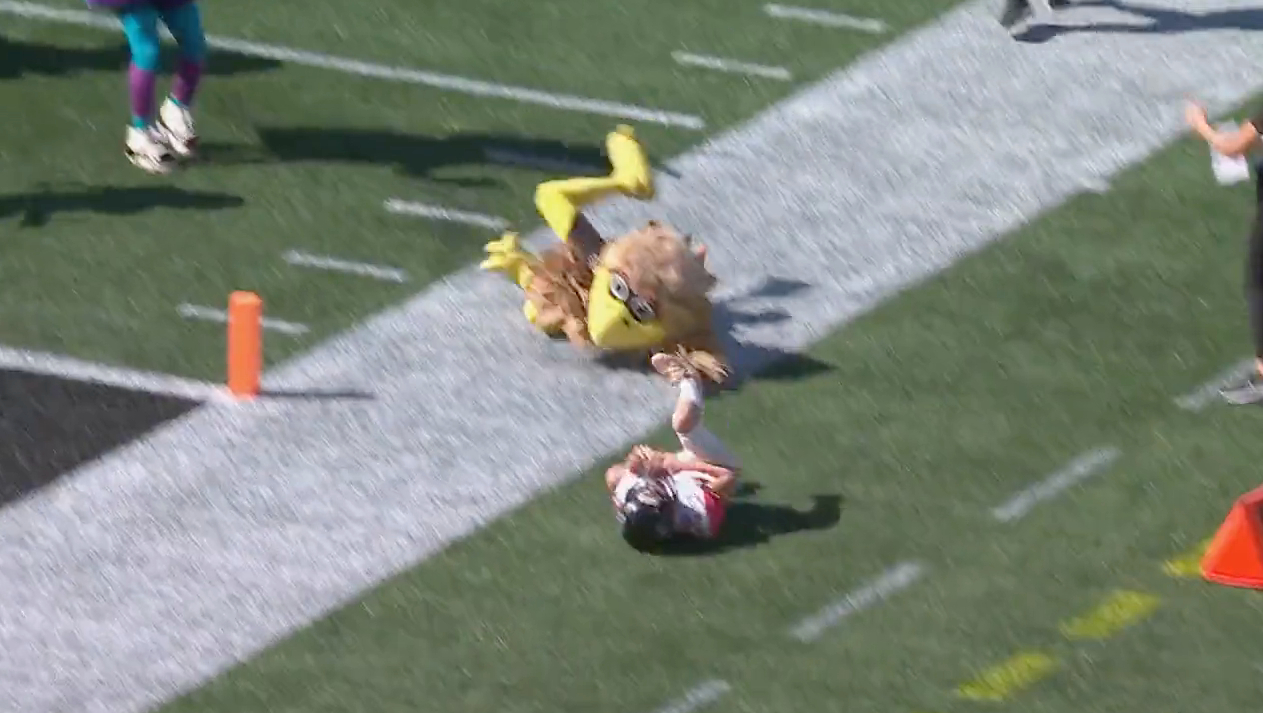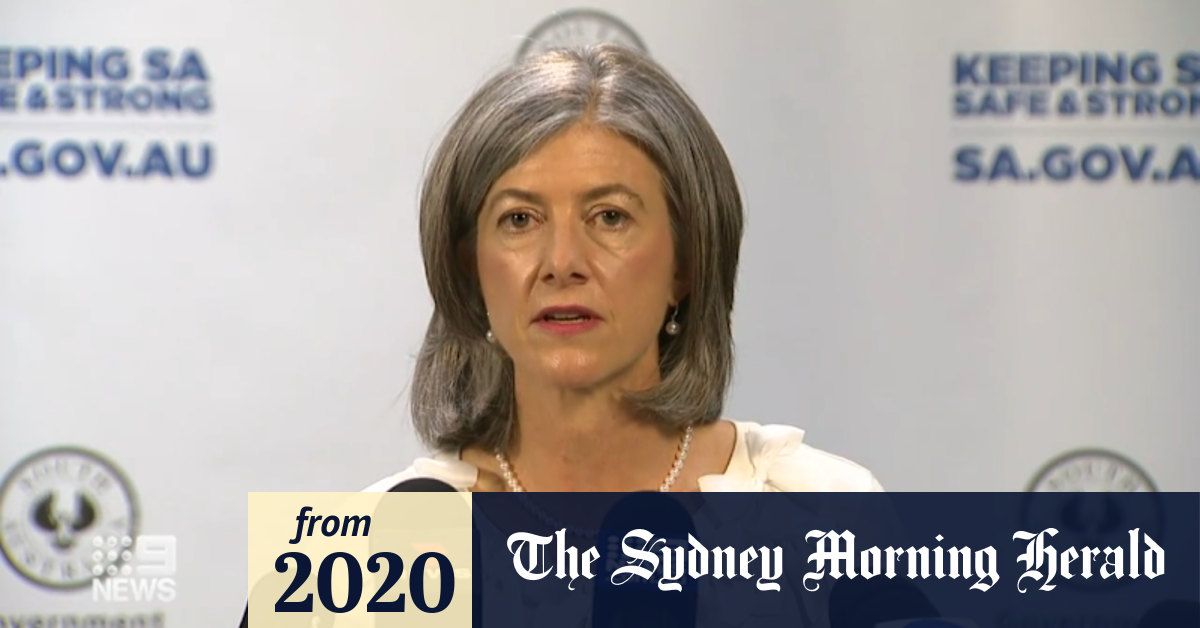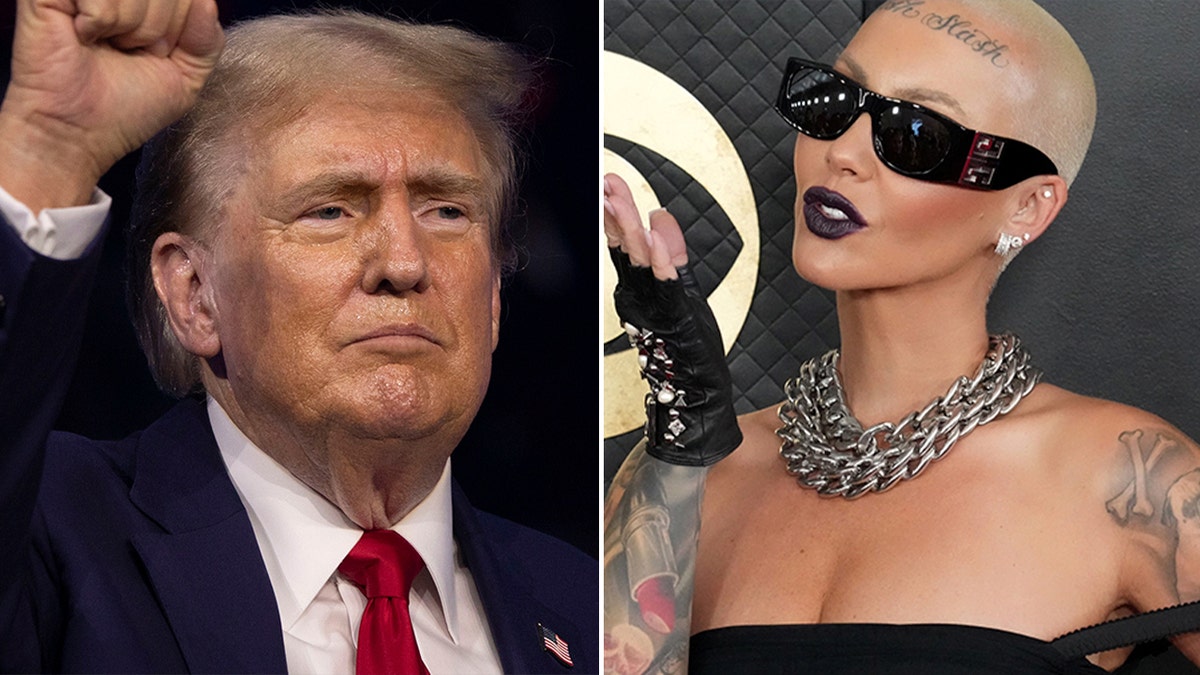Understanding Russia's Military Strategy And Its Impact On Europe

Table of Contents
Key Components of Russia's Military Doctrine
Russia's military doctrine is a multifaceted approach encompassing nuclear deterrence, conventional warfare capabilities, and information warfare. Understanding these components is vital to grasping its strategic intentions and potential actions.
Nuclear Deterrence and its Role
Nuclear weapons form the cornerstone of Russia's military strategy, acting as a primary deterrent against potential adversaries. Russia's extensive modernization efforts, including the development of new delivery systems and warheads, enhance its nuclear capabilities and pose significant implications for European security. Its vast nuclear arsenal, comprising intercontinental ballistic missiles (ICBMs), submarine-launched ballistic missiles (SLBMs), and strategic bombers, ensures a robust second-strike capability.
- Escalate to de-escalate: Russia's doctrine incorporates the concept of "escalate to de-escalate," suggesting a willingness to escalate conflict to a higher level, including the potential use of tactical nuclear weapons, to force a de-escalation from its opponent.
- Specific Nuclear Weapons Systems: Modernization includes the deployment of advanced systems like the RS-28 Sarmat ICBM and the Poseidon nuclear-powered underwater drone, significantly enhancing its strategic strike capabilities.
- Impact on NATO Strategy: Russia's nuclear modernization program forces NATO to constantly reassess its deterrence strategy, leading to increased defense spending and heightened military preparedness.
Conventional Warfare Capabilities
Russia possesses substantial conventional military capabilities, including a large ground force, a modernized air force, and a navy focused on regional power projection. While possessing numerical advantages in some areas, its conventional forces face challenges in terms of technological sophistication and logistical readiness compared to NATO forces.
- Modernization Programs: Russia has invested in modernizing its conventional forces, although progress has been uneven across different branches. Upgrades to tanks, armored vehicles, and artillery systems have been prioritized.
- Technological Advancements: While some technological advancements have been made, gaps exist in areas such as precision-guided munitions, advanced communication systems, and overall technological integration compared to Western counterparts.
- Logistical Challenges: Russia's military has historically struggled with logistical challenges, particularly during large-scale operations, a weakness that was exposed during the Ukraine conflict.
Information Warfare and Hybrid Operations
Russia has demonstrated a proficiency in utilizing information warfare and hybrid operations to achieve its strategic goals. These tactics involve disinformation campaigns, cyberattacks, and the exploitation of social and political divisions within target countries.
- Impact on Public Opinion: Disinformation campaigns aim to manipulate public opinion in Europe, sow discord, and undermine trust in democratic institutions.
- Countering Hybrid Operations: Combating these operations presents a significant challenge for European countries, requiring coordinated efforts to identify and counter disinformation, bolster cybersecurity, and strengthen resilience against foreign interference.
- Destabilization of Regional Security: Russia's use of information warfare and hybrid operations contributes to regional instability and complicates efforts to maintain peace and security in Europe.
Russia's Military Actions and their European Impact
Russia's recent military actions have had far-reaching consequences for European security, impacting regional stability and the broader geopolitical landscape.
The Ukraine Conflict and its Geopolitical Ramifications
The ongoing conflict in Ukraine represents a watershed moment, demonstrating Russia's willingness to use military force to achieve its geopolitical objectives. The conflict's strategic goals, including the destabilization of Ukraine and the assertion of Russian influence in the region, have had profound repercussions.
- Military Strategies: The conflict showcased a combination of conventional warfare, information warfare, and hybrid tactics, highlighting the complexity of Russia's military approach.
- International Involvement: The conflict has drawn in international actors, leading to significant geopolitical tensions and sanctions against Russia.
- Humanitarian Consequences: The conflict has resulted in a major humanitarian crisis, with widespread displacement, casualties, and destruction of civilian infrastructure.
Regional Deployments and Military Exercises
Russia's military presence in neighboring countries, along with its frequent military exercises, significantly impact regional security and send clear strategic messages. These actions create a climate of uncertainty and raise concerns among neighboring states.
- Key Deployments: The deployment of troops and military equipment near borders sends a clear message of intent and exerts pressure on neighboring countries.
- Military Exercises: Large-scale military exercises, often involving advanced weaponry and troops, are used to demonstrate military capability and project power.
- Strategic Messaging: These deployments and exercises serve to reinforce Russia's claims of regional dominance and influence.
Impact on NATO and European Defense Spending
Russia's military actions have significantly influenced NATO strategy and spurred increased defense spending across Europe. The perceived threat from Russia has led to enhanced military cooperation and a shift towards a more robust defense posture.
- Increased Defense Budgets: Many European countries have increased their defense budgets in response to the perceived threat from Russia.
- Enhanced Military Cooperation: NATO allies have strengthened their military cooperation, including increased joint exercises and intelligence sharing.
- Changes in Military Posture: NATO has adapted its military posture, including increased forward deployment of forces and enhanced deterrence measures.
Potential Future Scenarios and Implications for Europe
Predicting future Russian military strategies requires considering various factors, including technological advancements and geopolitical shifts. Understanding potential scenarios is crucial for developing effective countermeasures.
Assessing Future Russian Military Strategies
Future Russian military strategies may involve continued modernization of its nuclear and conventional forces, increased reliance on information warfare, and attempts to exploit geopolitical vulnerabilities in Europe.
- Potential Scenarios: Potential scenarios include further incursions into neighboring countries, intensified hybrid warfare campaigns, and escalating tensions with NATO.
- Geopolitical Factors: Geopolitical factors, such as the ongoing war in Ukraine and the evolving relationship with China, will significantly influence Russia's future military strategies.
- Strategic Goals: Russia's strategic goals will likely continue to focus on protecting its interests, asserting its influence in its near abroad, and challenging the existing international order.
Europe's Response and Adaptation Strategies
European countries are adapting their defense strategies to address the challenges posed by Russia's military actions. These adaptations include investments in defense capabilities, enhanced military cooperation, and strengthened resilience against hybrid threats.
- Investments in Defense Capabilities: European countries are investing in modernizing their armed forces, focusing on areas such as air and missile defense, cyber security, and intelligence gathering.
- International Cooperation: Strengthening international cooperation, particularly within NATO and the European Union, is critical for enhancing collective defense capabilities.
- Resilience Against Hybrid Threats: Improving resilience against hybrid threats, such as disinformation campaigns and cyberattacks, is crucial for maintaining stability and security.
Conclusion: Understanding Russia's Military Strategy and its Impact on Europe – A Call to Action
This article has examined the key components of Russia's military strategy, its recent actions, and the profound implications for European security. Understanding Russia's military strategy and its impact on Europe is not merely an academic exercise; it is a critical aspect of maintaining regional stability and developing effective countermeasures. The ongoing conflict in Ukraine, combined with Russia's assertive military posture and advanced capabilities in information warfare, presents significant challenges that require continuous vigilance and adaptation. To foster a better understanding of this crucial geopolitical issue, continue learning through further research. Consult resources such as the International Institute for Strategic Studies (IISS), the Atlantic Council, and the Royal United Services Institute (RUSI) for in-depth analysis and informed perspectives on Russia's military strategy and its evolving impact on Europe.

Featured Posts
-
 Atlanta Falcons Dcs Son Apologizes For Prank Call To Cleveland Browns Shedeur Sanders
Apr 29, 2025
Atlanta Falcons Dcs Son Apologizes For Prank Call To Cleveland Browns Shedeur Sanders
Apr 29, 2025 -
 Germany Sees Lowest Migration Since Covid 19 Border Controls Cited As Key Factor
Apr 29, 2025
Germany Sees Lowest Migration Since Covid 19 Border Controls Cited As Key Factor
Apr 29, 2025 -
 Two Sides Of The Coin American Expats Experiences Living In Spain
Apr 29, 2025
Two Sides Of The Coin American Expats Experiences Living In Spain
Apr 29, 2025 -
 Understanding Willie Nelson Key Facts And Figures
Apr 29, 2025
Understanding Willie Nelson Key Facts And Figures
Apr 29, 2025 -
 Technical Glitch Forces Blue Origin To Postpone Rocket Launch
Apr 29, 2025
Technical Glitch Forces Blue Origin To Postpone Rocket Launch
Apr 29, 2025
Latest Posts
-
 Supergirl Star Milly Alcock Featured In Netflixs Sirens Cult Thriller
Apr 29, 2025
Supergirl Star Milly Alcock Featured In Netflixs Sirens Cult Thriller
Apr 29, 2025 -
 Netflixs Sirens Trailer Supergirl Milly Alcock And Julianne Moores Cult
Apr 29, 2025
Netflixs Sirens Trailer Supergirl Milly Alcock And Julianne Moores Cult
Apr 29, 2025 -
 Kevin Bacon And Tremor 2 Fact Or Fiction Netflix Series Rumors Debunked
Apr 29, 2025
Kevin Bacon And Tremor 2 Fact Or Fiction Netflix Series Rumors Debunked
Apr 29, 2025 -
 Tremor 2 Netflix Series The Kevin Bacon Return Speculation Explained
Apr 29, 2025
Tremor 2 Netflix Series The Kevin Bacon Return Speculation Explained
Apr 29, 2025 -
 Trump And Rose The Full Pardon Scenario And Political Fallout
Apr 29, 2025
Trump And Rose The Full Pardon Scenario And Political Fallout
Apr 29, 2025
